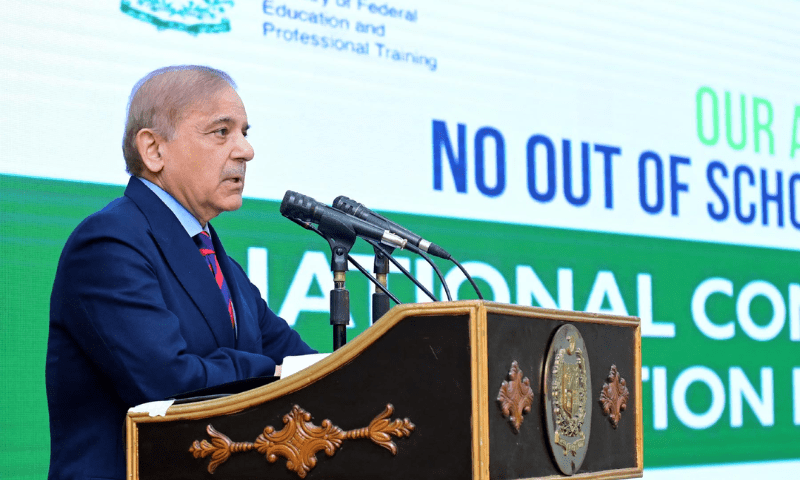Pakistan faces an educational emergency with over 26 million children out of school
The government’s latest education figures highlight the problem. Prime Minister Shehbaz Sharif yesterday opened a conference to address the nation-wide problem. According to UNICEF, 70 per cent of 10-year-olds are unable to read or understand texts. Teachers note that children are forced to work to help their families.
Islamabad (AsiaNews) – Pakistani Prime Minister Shehbaz Sharif wants to promote education and literacy for about 26 million children who are not enrolled in school.
“Today, with iron conviction, and the support of provinces, we will handle the challenge of 26 m[illion] out-of-school children. We will bring them back to school,” he told the National Conference on Education Emergency. “I will personally supervise the programme,” he went on to day.
To this end, Sharif wants provincial chief ministers “to march in unison” so that “Pakistan will emerge as one of the most educated societies one day.” But “the real challenge is the will to do.”
Earlier this year, after receiving the latest statistics, the government announced plans to declare a four-year national emergency to address problems related to the education sector.
According to a report for 2021-22, 26.21 million children are not in school (out of a population of over 245 million); this represents 39 per cent of all Pakistani children: 11.73 million in Punjab, 7.63 million in Sindh, 3.63 million in Khyber Pakhtunkhwa, 3.13 million in Balochistan, and 0.08 million in Islamabad.
Despite a series of government campaigns, these numbers have kept rising in recent years. Hence, the education sector needs immediate action and urgent responses, says Education Minister Khalid Maqbool Siddiqui.
“The statistics of education in Pakistan are disturbing, alarming, and disheartening. More than 26 million children are out of school. This number is greater than the population of 150 countries in the world,” he explained.
Pakistan spends only 1.7 per cent of its GDP on education. According to some sources, the government should allocate at least 4 per cent to improve education.
UNICEF representative in Pakistan, Abdullah A. Fadil, said that more than 70 per cent of children aged 10 could not read or understand texts. Despite the provisions of the constitution, education in Pakistan is still neither compulsory nor free, he added.
“In most of the cases, the kids work to help their families,” said a teacher in Islamabad, speaking anonymously with The Dawn. The “children will not be able to join schools till this issue is resolved,” they added.
During yesterday’s conference, several experts explained that children's food security and education go hand in hand.
School meals are one of the best ways to invest in future generations, said in a video message Coco Ushiyam, the World Food Programme Country Director.
As World Bank Vice-President Martin Raiser pointed out, 40 per cent of children in Pakistan have growth problems, a percentage that rises to 60 per cent in the poorest and most disadvantaged districts.
29/02/2024 20:15
24/10/2022 15:30
28/06/2023 19:43







.png)










